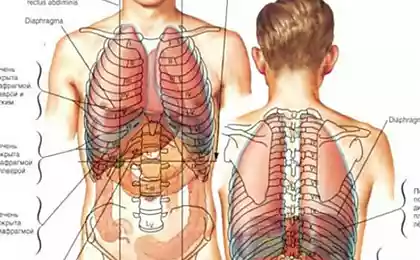230
11 situations that cause feelings of guilt, and how to cope with them

Guilt is one of the most complex and destructive emotions in the arsenal of the human psyche. It can sneak into our daily lives, poisoning even the most joyful moments. Sometimes we carry a burden of guilt for actions that objectively do not deserve such punishment. In other situations, we experience what is called “irrational guilt,” a feeling that has no real basis.
It is important to understand that guilt has evolutionary roots and originally served an adaptive function. It helped our ancestors observe social norms and maintain group harmony. However, in the modern world, this feeling often turns into a brake on personal development and a source of psychological discomfort.
According to research conducted by the American Psychological Association, about 62% of people regularly experience unreasonable feelings of guilt that negatively affect their emotional well-being and quality of life. Of these, 38% admit that these experiences interfere with important life decisions.
Recognition of unjustified guilt
Before we get to specific situations, it’s important to learn to distinguish between a healthy sense of responsibility and a destructive sense of guilt. A healthy sense of guilt encourages us to apologize and make amends when we did something wrong. It is constructive and aimed at restoring relations. Unjustified guilt does not lead to positive change, but only depletes our emotional resources.
11 common situations that cause feelings of guilt
1. Setting personal boundaries
Many of us feel remorse when we say no to people close to us or give up extra responsibilities at work. This is especially true for people with high levels of empathy or those who grew up in a family where personal boundaries were not respected.
How to cope:
- Remind yourself that setting boundaries is self-respect, not selfishness.
- Practice soft but firm rejections, such as, “I appreciate your offer, but right now I need to focus on my priorities.”
- Remember that your emotional well-being is just as important as the well-being of others.
2. Parental guilt
Parents, especially mothers, often suffer from chronic guilt. They feel that they do not give enough time to children, can not provide everything they want, or make the wrong educational decisions. This guilt is amplified by social pressure and idealized images of parenthood in the media.
How to cope:
- Recognize that perfect parenthood does not exist
- Appreciate the quality of time spent with children, not the quantity
- Look at your achievements objectively: list all the good things you do for your children.
- Discuss your parental anxieties with other parents – it helps to understand that you are not alone in your experiences.
3. Professional success against the background of failures of loved ones
When we achieve success while our friends or loved ones struggle, there is often a paradoxical sense of guilt about our own accomplishments. This phenomenon is called “survivor’s syndrome” in the professional sphere.

How to cope:
- Remember that your success is not the cause of other people’s failure.
- Use your position to help others if possible.
- Celebrate your achievements – they are the result of your work and deserve recognition.
4. Priority for self-care
When we devote time to self-care, especially during times of stress or family crises, we often feel that we neglect our responsibilities to others. In our culture, self-sacrifice is sometimes elevated to the rank of virtue, which reinforces this sense of guilt.
Studies show that regular self-care reduces burnout by 47% and increases efficiency in life tasks by 35%. This means that by taking care of yourself, you end up being more resourceful to help others.
5. Experience joy after loss
After the loss of a loved one, many feel guilty when they begin to enjoy life again. They feel that they betray the memory of the deceased or do not mourn enough. This is especially true for people raised in traditions where grief has strict time frames and rituals.
How to cope:
- Realize that the ability to enjoy life does not diminish your love for the departed person.
- Find ways to honor your loved one’s memory while still living a fulfilling life
- If necessary, consult a grief specialist.
6. Inconsistency with social expectations
Society forms many expectations about how we should live: when to get married, have children, what career to build. Deviating from these norms often causes internal conflict and guilt, even if the chosen path brings satisfaction.
How to cope:
- Determine which values are really important to you
- Analyze where your ideas about what your life “should” look like come from.
- Surround yourself with people who support your personality.
7. Financial success and consumption
Material well-being is often accompanied by the so-called “guilt of the privileged.” We may feel uneasy about being able to afford certain benefits, knowing that many people are denied those opportunities.
How to cope:
- Practice gratitude for what you have.
- Consider sharing your resources through charity or volunteering
- Separate Your Self Value from Your Financial Status
8. Failure to help everyone in need
There are many problems in the world that need to be solved, and failing to help everyone often causes guilt. This is especially acutely felt by people of helping professions, activists and highly empathic personalities.
Psychologists call this “compassion fatigue” or “empathetic burnout.” Studies show that this condition leads to reduced effectiveness of care and can seriously damage mental health.
9. Memories of past mistakes
Even long-time mistakes can continue to cause acute feelings of shame and guilt. Our brains tend to return to painful memories, especially in moments of vulnerability or insecurity.

How to cope:
- Practice self-forgiveness through written practices or meditation
- Learn from past situations by focusing on what you can do differently in the future.
- Remind yourself that your past actions do not define you as a person.
10. Need for rest and recovery
In a culture that celebrates productivity and constant employment, the need for rest is often perceived as laziness or failure. It creates internal conflict and guilt when we pause.
How to cope:
- Realize that rest is a biological necessity, not a luxury.
- Rethink productivity by including recovery time
- Plan rest periods as carefully as work tasks
11. Life after a traumatic experience
People who have experienced traumatic events (particularly if others have suffered more severely) often experience what is known as “survivor’s guilt.” They feel that they do not deserve life or happiness when others have been deprived of this opportunity.
How to cope:
- Recognize that your survival is not the cause of others’ suffering
- Find a way to honor those affected through meaningful action
- See a therapist who specializes in dealing with trauma
Universal strategies for overcoming guilt
Practical recommendations for everyday life:
- Mindfulness and observation. Learn to recognize guilt as soon as it occurs. Ask yourself, “What am I feeling right now and why?”
- Reality check. Assess the situation objectively: does the intensity of guilt correspond to the actual misconduct? What would you say to a friend in such a situation?
- Practice self-compassion. Treat yourself with the same kindness as you would treat a loved one. Studies show that self-compassion significantly reduces the intensity of negative emotions.
- Transforming blame into responsibility. Instead of passively experiencing guilt, ask yourself, “What can I do now to fix the situation or prevent it from happening in the future?”
- Acceptance and Accountability Therapy (ACT). This approach helps to develop psychological flexibility and learn to live according to personal values, despite painful emotions.
Conclusion
Guilt is an inevitable part of the human experience, but it shouldn’t govern your life or determine your self-esteem. It is important to distinguish between a productive sense of responsibility and a destructive sense of guilt. The first leads to growth and change, the second to stagnation and emotional exhaustion.
Dealing with unjustified guilt is not a quick process, but rather a consistent practice that requires patience and self-compassion. With each step along the way, you will become more aware of yourself and your true needs, freeing yourself from unnecessary emotional burdens.
Remember that taking care of your own emotional well-being is not selfishness, but a necessary condition for a full and harmonious life. By freeing yourself from unproductive guilt, you will be able to help others more effectively and fulfill your potential.
Glossary of terms
Irrational guilt is a sense of guilt with no objective basis or disproportionate misconduct.
Empathy is the ability to understand and share the feelings of another person, to put yourself in his place.
Survivor syndrome is a complex of psychological reactions that occur in a person who has survived a disaster or other traumatic situation in which other people have died.
Self-care is a conscious activity aimed at maintaining physical, emotional and mental health.
Empathic burnout is a state of emotional, physical, and mental exhaustion caused by prolonged involvement in situations that require empathy.
Self-compassion is treating oneself with understanding, patience, and care, especially in moments of suffering or failure.
Acceptance and Responsibility Therapy (ACT) is a psychotherapeutic approach aimed at developing psychological flexibility through accepting inevitable difficulties and committing to actions based on personal values.
Psychological boundaries are invisible limits that define where one person’s personality ends and another’s personality begins, including physical, emotional, and intellectual aspects.
6 Habits to Become a Charismatic Person
What it means to do the right thing and why it is so difficult























